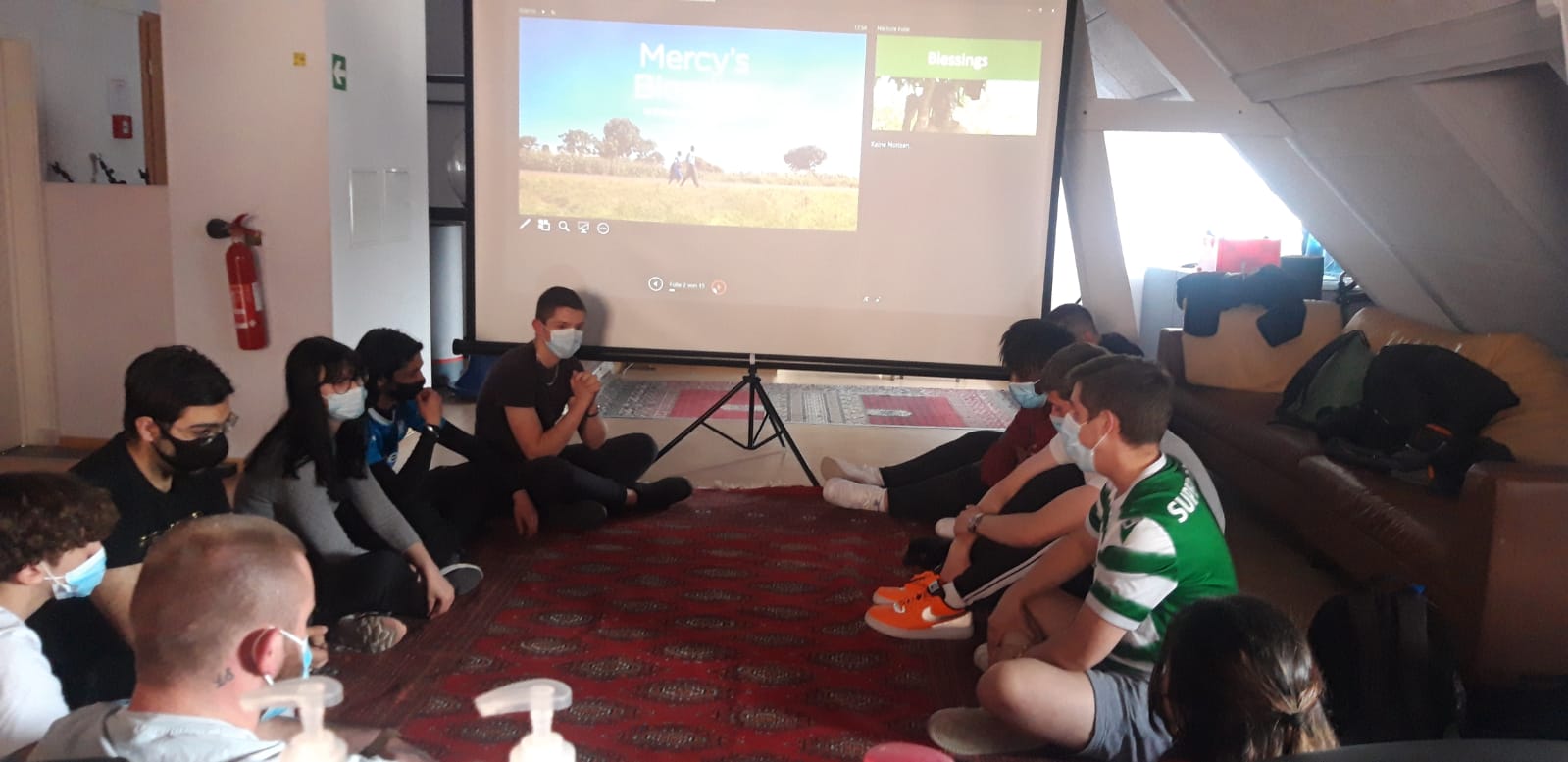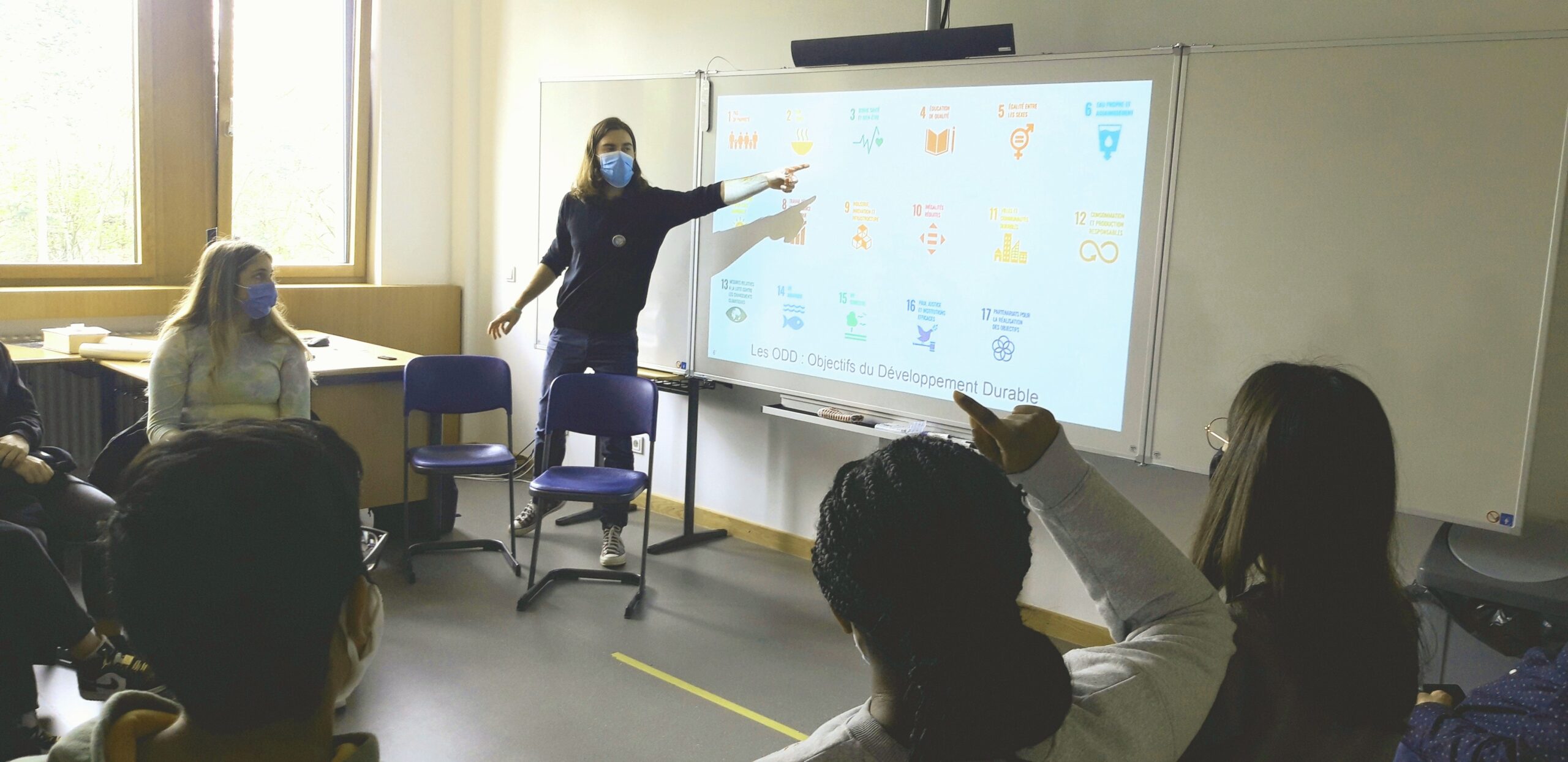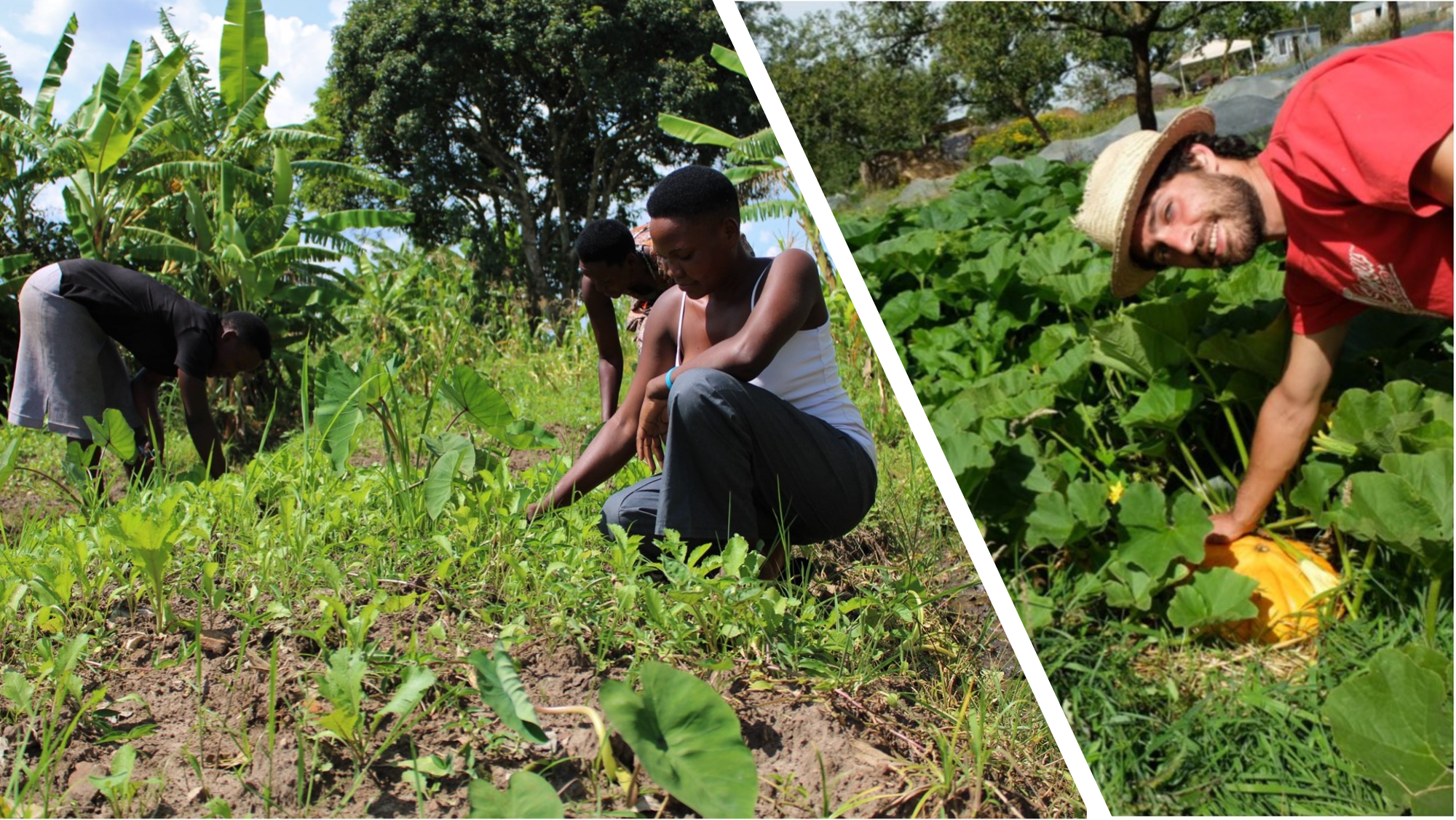
A few hours between Malawi and the Jugendtreff Norden in Troisvierges: A new Mercy’s Blessing workshop
24/06/2021
An overview of Unity Foundation’s latest activities with youth in luxembourg
08/07/2021A look back at the online event “Local agricultural initiatives: sources of resilience in the context of the pandemic”
On June 30, 2021, some 50 people gathered online for the event “Local agricultural initiatives: sources of resilience in the context of the pandemic” organized by Unity Foundation.
By presenting the Ugandan and Luxembourgish perspectives, the event was an opportunity to realize that “despite the 6,000 km that separate us, our realities are much more similar than one might imagine”, as Fernand Schaber, President of Unity Foundation, pointed out.

Panelists Joseph Lample (Kimanya-Ngeyo Foundation) and Karine Paris (CELL), with Fernand Schaber (President of Unity Foundation) and Masaidio Kalenga (Kimanya-Ngeyo Foundation) during the Q&A part of the conference.
In his presentation, Joseph Lample, Executive Director of Kimanya-Ngeyo Foundation for Science and Education, based in Jinja Uganda, shared:
“The pandemic was an opportunity for us to think more meaningfully and deeply about how we are engaged in agricultural practice and how we are promoting agricultural activity throughout the groups, participants and communities we are working with.
Early on in the pandemic, during the first lockdown that took place in Uganda, we took time to revisit some of the units of the Preparation for Social Action program on agriculture with tutors throughout the country, but also to reflect on the experiences and responses that other countries were taking around agriculture. We then decided that agriculture should be the core priority of the organization.
Although we have a number of areas that we are engaged in, we felt that agriculture was going to be an essential tool for the assistance of communities in this time of uncertainty, in order to ensure their well-being, food security and the health of their families. So while we were very much engaged in awareness raising around COVID-19 itself, we also put a significant amount of emphasis on encouraging communities and individuals within our programs to look back at the agricultural work we were doing.”

The agricultural activities promoted by Kimanya-Ngeyo Foundation strengthened in the context of the pandemic.
The crucial importance of developing local agriculture, especially in the context of the pandemic, was also emphasized by Karine Paris, CELL’s Urban Gardening Coordinator:
“For us, a community garden is a garden where everything is shared: the reflection on design, the crop planning, the production methods, the decisions and the harvests. One of the reasons people get involved in community gardens is what I call the sense of community, this need for sharing, for solidarity, for social connection. There is also this need to reconnect with nature because there is a feeling of strong disconnection, of loss of knowledge… With the pandemic, while some gardens may have suffered from a lack of people interested in gardening, not only did the garden become the place where one could go out and have a living space outside of the houses, but also, what was striking for most people was to see that while we live in a country of opulence, our supermarkets were empty. The fragility of the food systems became manifest and this has been a trigger in the minds of some people, making them want to take ownership of the cycles of production and therefore build resilience.”
As Joseph Lample pointed out, this resilience is manifested when communities learn to become protagonists of their own development and free themselves from “an attitude of dependency on pre-packaged models— the expectation that you are going to bring something to me and I am just going to implement it as is, without thinking too much about what needs to be adapted, or whether it makes sense for my reality”:
“The core thing that we’ve learned through the pandemic experience is that the reason why our agricultural activities have continued to thrive during the pandemic is that the program is flexible and it emphasizes the generation, application, and dissemination of knowledge at the local level. We are helping people to appreciate the fact that they themselves can address some of the challenges that they have. But it’s not like they are addressing these challenges by making up plans on their own; they are engaging and learning to approach things scientifically, to think about their needs and wellbeing through what they have studied, to work together with others in their community, and devise their own plans for the needs and challenges they are facing in their community.”
To hear examples of how this takes shape and much more, you can listen or re-listen to the conference here.
A big thank you to the speakers for their rich presentations and to all the participants for their presence! Stay tuned for the next conferences of this series on equally exciting topics!



